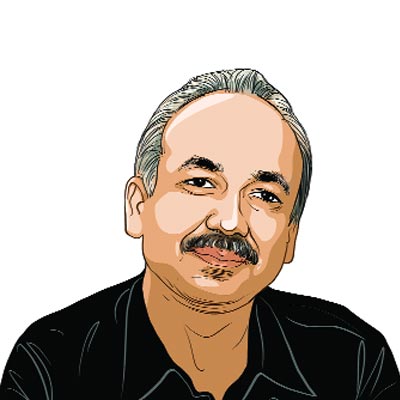Opinion Takeaway from Delhi
How Kathmandu is reacting to Bhattarais visit
Delhi is the first destination that any Nepal prime minister would want to visit. Whether Delhi extends a prompt invitation or drags its feet becomes an issue in Kathmandu,since the southern neighbour is considered a major factor in Nepals politics. Prime Minister Manmohan Singh congratulated Baburam Bhattarai within minutes of his election as prime minister on August 28 and invited him over,emphasising the special relationship between the two countries. Bhattarai completed his Delhi visit last weekend.
Delhi is almost like a home to Bhattarai. He spent about a decade in the city,first as a student in the late 1970s and early 1980s,and then as a revolutionary for many years since 1996 when the Communist Party of Nepal-Maoists waged a war against the state of Nepal. He was also Delhis trusted leader,who is credited with having invited India to play a mediatory role and bring together Maoists and other political parties in 2005,a move that would eventually bring about sweeping political changes in the Himalayan nation. However,the following years saw Nepal wracked by political instability there have been five prime ministers in as many years. The completion of the peace process and the drafting of a new constitution are more than two years behind schedule. But Delhi is hopeful that the twin processes will be completed under Bhattarais leadership.
During Bhattarais visit,Nepal and India signed the Bilateral Investment Promotion and Protection Agreement (BIPPA),under which Indian commercial entities would be compensated on par with local firms,in the event of an insurrection or riot. A line of credit worth $250 million one-fourth of what Bhattarai had wanted for Nepals infrastructural development was also cleared. BIPPA has evoked mixed reactions in Nepal. It has been criticised because it could add to the states financial liability and because the closure or disruption of some Indian projects has allegedly been the work of Maoist affiliates. The secretary of the Maoist party,C.P. Gajurel,and former prime minister Jhalanath Khanal have said that the agreement is against the national interest. Bhattarai is aware of the risk he is taking. I have gambled,and I may lose (the post),but we cannot build the nation without taking risks, he said at the end of his four-day trip. There is some rankling in Kathmandu about the atmospherics around the visit as well: that not even a minister of state was there to receive Bhattarai at the airport.
During the days of Maoist insurgency,Bhattarai was most vocal in criticising Indian hegemony,which he said was the real threat to Nepals sovereignty. He had spoken out against the treaties of the past,including the 1950 Treaty of Peace and Friendship,saying they were unequal. However,senior Indian bureaucrats who were involved in the 2005 mediation still consider Bhattarai the best bet.
As prime minister,he wants to send across the message that he has buried his anti-India past. Now,India is the most important neighbour. He also wants to prove that he is in command of the peace process and domestic politics. Before he left for India,he tried desperately to get the consent of the three big parties,including the Maoists,on the number of Maoist combatants to be integrated into the Nepal army,and on an attractive compensation package for them. The talks had to be abandoned,following stiff opposition from a rival faction in his own party.
Kathmandu is also trying to decipher the slight change in Indias tone. Earlier,it had said it would provide all the support that Nepal wanted to finish the peace and constitution-drafting process. However,after meeting Bhattarai,External Affairs Minister S.M. Krishna said,India would do every thing in its power depending on the comfort level of the leadership of Nepal to write a constitution and bring the peace process to a logical conclusion.
It wouldnt be easy for Bhattarai at home. BIPPA,in particular,could create trouble.
yubaraj.ghimire@expressindia.com


